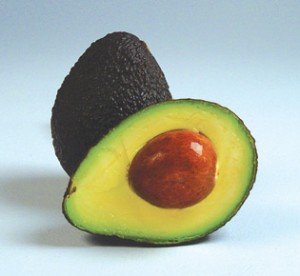-
Truly AMAZING Superfood: Avocado Nutrition
Tuesday, April 15th, 2025by Lisa Young, Nutritional Counselor
The conventional wisdom about avocados and avocado nutrition seems to be that they are a high fat, high calorie food which should be avoided. The truth is that this nutritious fruit contains more than 25 important nutrients vital to good health.
 Avocados are in many ways an ideal food due to their complete calories, antioxidants, minerals, vitamins, and dietary fiber. They also have very low cholesterol and sodium content, which is why avocados are so nutritious and good for you.
Avocados are in many ways an ideal food due to their complete calories, antioxidants, minerals, vitamins, and dietary fiber. They also have very low cholesterol and sodium content, which is why avocados are so nutritious and good for you.It’s important to reduce our consumption of the harmful saturated fats found in animal and dairy products. The fats in the avocado are primarily of the mono-unsaturated variety. These fats are known to aid the body in its absorption of nutrients.
Mono-unsaturated fats are made up of alpha vitamins, beta-carotene and lutein. The fiber content of avocados helps maintain the heart in good condition and supports better digestion.
In addition, avocados contain essential minerals for proper nutrition like magnesium, phosphorus, copper and iron. Even better, the avocado nutrition profile includes protein, vitamins B, C, and E, folic acid, and potassium.
The nutritional benefits of avocados also include phytochemicals like glutathione (good for the skin) and beta-sitosterol (which helps reduce cholesterol). In particular, beta-sitosterol can help individuals with diabetes to lower their triglycerides and cholesterol by up to 20 percent.
Nutritional Benefits of Avocados
The avocado is a super-nutritious fruit that contains 30 percent potassium which can lower the risk of high blood pressure, heart attack and even cancer. Eating avocados is recommended for pregnant women because of the fruit’s high folate content. It’s also ideal for diabetic nutrition.
The folate in avocados can help prevent birth defects of a baby’s brain and spine. Avocado nutrition is also a good source of fiber that assists in preventing colon cancer, heart disease, and lowering blood pressure.
There are many nutritional benefits to including organically-grown avocados in your nutrition plan. For example, avocados can help your skin look better. Eating avocados also cleanses your intestines so that you can avoid embarrassing bad breath.
Avocados can help individuals who want to gain weight because the calorie count of avocados is 200 calories per 100 grams. Eating an avocado diet can help prevent strokes and may mitigate the causes of atherosclerosis.
Avocados are Good for the Skin
Avocado consumption is good for healing cuts, curing acne breakouts, healing scars, and preventing dermatitis. This is due to its strong anti-bacterial and anti-inflammatory properties. Avocados can also be a treatment for the skin disease known as psoriasis.
Avocados are high in vitamin C, which supports the production of collagen. Collagen is essential for the healthy growth of body cells and tissues.
The vitamin C in avocados also helps prevent harmful viruses from penetrating the body’s cell membranes. This highly-nutritious fruit has large amounts of riboflavin, thiamine, and a variety of anti-oxidants.
An avocado facial can do wonders for your skin. Avocados have moisturizing power to help make your skin softer and more lustrous. The avocado is a natural facial treatment, especially good for dry skin.
Take a whole avocado, mash it and then mix it with milk or oatmeal and apply to your face. Leave on for 10 to 12 minutes, then rinse off with plenty of water.
Mixing avocado with eggs, fresh fruits, honey oats, or nutritional yeast are other good ideas for a rejuvenating facial mask.
Other Health Benefits of Eating Avocados
There are a multitude of other health benefits that come from eating avocados on a regular basis. For example, avocados are high in oleic acid, which has been shown to prevent breast cancer in research studies.
Avocados contain more of the carotenoid lutein than any other commonly consumed fruit. One of the key benefits of lutein is that it protects against macular degeneration and cataracts, two age-related eye diseases.
Avocados are also high in beta-sitosterol, which has been shown to help lower cholesterol levels. In one research study, a group of volunteers experienced an average drop in cholesterol of 17 percent after eating exclusively avocados for one week.
One cup of avocado contains 23% of the RDA of folate. Research shows that people who eat a diet high in folate have a significantly lower incidence of heart disease. Avocados also contain other heart-healthy compounds like vitamin E, monounsaturated fats and glutathione.
The folate in avocado is also protective against strokes. Studies show that individuals who eat diets rich in folate have a substantially lower risk of stroke.
Research has also found that when you eat avocados with other foods, certain nutrients are better absorbed. For example, one study showed that eating a salad containing avocados markedly increased the amount of carotenoids absorbed by the body.
In conclusion, it’s easy to see why avocado nutrition should become a key part of your healthy diet. This fruit is packed with vitamins, minerals and many other beneficial nutritional elements and is truly a superfood!
(published July 16, 2011)


